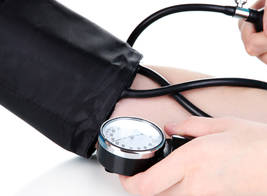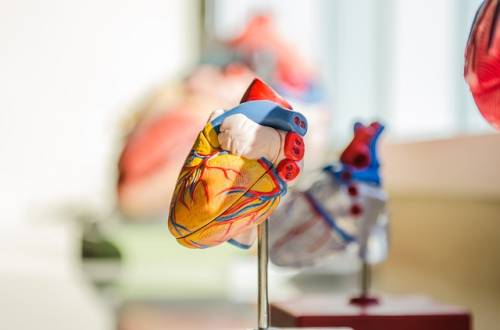Why does the pulse sometimes hammer away like a rock drummer while blood pressure hovers in the basement? This question pops up daily in U.S. clinics, urgent-care centers, and, yes, late-night Google searches. The phenomenon—low blood pressure (hypotension) paired with a high heart rate (tachycardia)—can be harmless or a sign of something serious. Let’s break it down Q&A-style, sprinkle in real-world numbers (in mm Hg/kPa, °F/°C, oz/g, etc.), toss in a few “American-isms,” and keep the tone smart but engaging.
Orthostatic Hypotension in Older Adults
Percentage of adults over 65 affected by postural blood pressure drops
The chart highlights the increasing prevalence of orthostatic hypotension with advancing age. Adults aged 85 and older are the most affected, with over one-third experiencing postural blood pressure drops.
What Does “Low Blood Pressure + High Pulse” Actually Mean?
Blood pressure under 90 / 60 mm Hg (12 / 8 kPa) meets the textbook definition of hypotension, while a resting pulse above 100 beats per minute (bpm) is tachycardia. When they show up together, it means your heart is going into overdrive to keep your organs well-fed with oxygen. Think of it like your home’s water pressure (blood pressure) being low, so the water pump (your heart) runs faster to get the same amount of water upstairs.
In essence, your heart’s working double-time to make up for the low driving force behind blood flow. It’s not just a mechanical reflex—it’s a survival instinct. If the body senses that not enough blood is reaching the brain, kidneys, or muscles, it sends a signal to speed up the heart.
Imagine driving a car uphill in low gear: the engine revs harder (like a fast pulse) because there’s not enough torque (like low BP) to push you forward easily. This combo isn’t always dangerous, but when it comes out of nowhere or lasts more than a few minutes, it’s your body waving a big yellow flag saying, “Hey, check this out.”
For many people, it’s temporary—caused by standing up too quickly, skipping a meal, or mild dehydration. But in others, it might point to blood loss, infection, or a heart rhythm issue. So, context is everything. ⧉
Low BP + High Pulse: Quick Facts
Source: iytmed.com
Why Can Pulse Spike When Pressure Drops?
| Common Trigger | Typical BP (mm Hg) | Pulse (bpm) | Mechanism |
|---|---|---|---|
| Dehydration (e.g., running 5 mi/8 km in 85 °F/29 °C heat) | 85/55 | 110–130 | Low plasma volume → sympathetic surge |
| Blood loss (trauma, GI bleed) | 80/50 | 120–150 | Reduced preload → reflex tachycardia |
| Sepsis | <90 systolic | >130 | Vasodilation + cytokine storm |
| Postural Orthostatic Tachycardia Syndrome (POTS) | Normal supine → 25–30 mm Hg drop on standing | Rise ≥30 bpm | Autonomic dysregulation |
| Medications (e.g., beta-blocker withdrawal) | Variable | Variable | Rebound sympathetic activity |
A 2023 ED study found that hypotensive patients without a tachycardic response had higher mortality than those with it ⧉—proof that a racing heart can be the body’s “no biggie, I’ve got this” reflex.
How Does It Feel? Three U.S. Case Snapshots
- “Almost passed out on the subway” – Zoe, 27, Brooklyn, NY: After skipping breakfast, her BP nosedived to 88/54 mm Hg and pulse hit 132 bpm—classic dehydration meets orthostatic stress.
- “Desert marathon mishap” – Carlos, 42, Phoenix, AZ: At mile 18 (29 km) in 100 °F/38 °C conditions, BP 82/50 mm Hg, pulse 140 bpm from fluid/salt loss.
- “Fainting in the garden” – Martha, 68, Chattanooga, TN: Undiagnosed GI bleed dropped BP to 78/46 mm Hg; pulse soared to 138 bpm, flagging hidden hemorrhage.
Dizziness Duration After Standing
How long typical symptoms last in orthostatic hypotension cases
This chart shows the duration of dizziness symptoms after standing in cases of orthostatic hypotension. Most individuals experience symptoms lasting less than 15 seconds, while longer episodes are significantly less common.
How Is the Duo Diagnosed?
Old-School vs. High-Tech Toolkit
| Diagnostic Test | How It’s Done | Accuracy (1–10) | Average U.S. Cost (USD / EUR) |
|---|---|---|---|
| Orthostatic Vitals | Manual BP + pulse lying, sitting, standing | 5 | ~$0 (clinic visit) |
| Smartwatch PPG (3rd-gen optical) | 30-sec spot check; ±0.5 bpm error | 6 | $0–$399 / €0–€370 |
| 24-hr Ambulatory BP + ECG Patch | Wearable cuff-less sensor | 8 | $250 / €235 |
| Tilt-Table Test (70°/178 cm tilt) | Motorized table, IV access | 9 | $579–$1,252 / €545–€1,180 ⧉ |
| Autonomic Reflex Screen | Beat-to-beat BP, Valsalva, QSART | 9 | $1,800 / €1,700 |
Protocols are faster now—the “Fast Italian” tilt cut runtime to 30 min without losing accuracy ⧉. Wearables also auto-flag a >30 bpm rise within 10 sec of standing, feeding data to EHRs.
What’s New in Treatment?
Oral and IV Rehydration
How it works: Drinking 12 oz (355 mL) of oral rehydration solution or administering 500 mL of IV crystalloid fluid restores circulating volume and stabilizes blood pressure quickly.
Effectiveness: Rated 8/10 for cases involving dehydration or heat exposure. Effects typically visible within 10–15 minutes.
Average U.S. cost: $2–$4 for oral, $150–$400 for IV (including administration).
Note: Brands like Pedialyte®, DripDrop®, or normal saline (0.9% NaCl) are commonly used.
Midodrine (ProAmatine®)
How it works: This oral alpha-1 agonist constricts blood vessels, raising blood pressure. Typically prescribed at 5–10 mg three times daily.
Indications: FDA-approved for symptomatic orthostatic hypotension and neurogenic hypotension.
Effectiveness: 7/10. Works well for chronic cases but less effective during acute emergencies.
Cost: $80–$150/month (generic available). Side effects include goosebumps, urinary retention.
Ivabradine (Corlanor®)
How it works: A sinus node inhibitor that slows heart rate without lowering blood pressure, making it useful for reflex tachycardia.
Clinical use: Off-label use under study for postural and reflex tachycardia in hypotensive patients.
Effectiveness: Still under evaluation—preliminary studies show promise for lowering heart rate by 10–15 bpm without hypotension.
Cost: Around $350/month; not yet standard for hypotension-tachycardia combos.
Closed-Loop Compression Technology
How it works: Devices like the RecoveryPump®, NormaTec® Pulse 2.0, or Therabody RecoveryAir® use micro-pumps to dynamically adjust calf compression in real time.
Effectiveness: 9/10 when used in patients with blood pooling or autonomic dysfunction like POTS. Improves venous return.
Cost: $600–$1,300 per unit. Not covered by all insurances, but durable and reusable.
Bonus: Devices often come with app integration and customizable settings.
Supine Leg Elevation (First Aid)
How it works: Raising the legs 12 inches (30 cm) while lying flat increases venous return and cardiac output temporarily.
Recommended by: AHA 2024 First Aid Guidelines ⧉
Effectiveness: 6/10 alone, but valuable as a first response. Especially helpful in public settings or at home before EMS arrives.
Cost: Free and easy to perform anywhere.
Pro tip: Hold position for 5–10 minutes and monitor symptoms. If dizziness persists or worsens, seek medical attention.
Can Lifestyle Tweaks Really Help?
You bet. Swapping just five minutes of couch time for stair climbing lowered SBP by ~4 mm Hg in a 14,761-person cohort ⧉. That’s worth a “high-five,” right?
- Hydration rule of thumb: 0.5 oz / lb (33 mL / kg) body weight daily in temperate climates. For a 150 lb (68 kg) adult, that’s about 75 oz (2.2 L) a day—more if you sweat a lot. Staying hydrated helps maintain blood volume and pressure.
- Salt: Up to 2 g/day extra (unless contraindicated). Sodium helps retain fluid in the bloodstream, supporting circulation. Just don’t go wild with the shaker—talk to your provider first.
- Compression wear: 20–30 mm Hg (2.7–4 kPa) gradient thigh-highs. These specially designed stockings or leggings gently squeeze the legs, helping blood return to the heart and reducing blood pooling in the lower body.
- Avoid sudden standing—“slow your roll,” as folks say. Take a few seconds to sit up before standing from bed or a chair. This gives your blood vessels time to adjust and helps avoid dizziness or falls.
When Is It an Emergency?
Call 911 if systolic BP <80 mm Hg (10.7 kPa) and pulse >140 bpm with symptoms like chest pain, confusion, shortness of breath, severe dizziness, or visible bleeding. These signs may indicate a life-threatening issue like internal hemorrhage, cardiac event, or septic shock.
However, context and duration matter. For example:
- After exercise or a hot shower: A temporary rise in heart rate with low-ish BP is often normal and resolves within minutes. Hydration and cooling down usually help.
- After eating (postprandial hypotension): Especially in older adults or those with Parkinson’s, BP may drop temporarily. If brief and symptom-free, it’s usually not dangerous.
- At night or early morning: Symptoms occurring at rest, especially when lying down or upon waking, are more concerning. If a racing heart and very low pressure persist beyond 10–15 minutes, medical evaluation is advised.
A helpful rule of thumb? If the symptoms are new, last more than 10 minutes, or keep happening without a clear reason, it’s smart to seek care. When in doubt, err on the side of caution—better safe than sorry.
Syncope Incidence by Age Group
How often people faint per 1,000 across ages
This chart illustrates the rate of fainting (syncope) across different age groups. Young adults aged 10–30 experience the highest incidence, while the rates decrease significantly in older age groups.
Editorial Advice
Reyus Mammadli, Medical Consultant, advises: “Treat the cause, not just the numbers. A liter (34 fl oz) of IV fluid may fix dehydration, but a hidden bleed or infection demands targeted therapy. Never ignore a racing pulse in a hypotensive patient—use it as a clinical compass.”
Editorial Team Tips
- Keep a daily hydration log—apps now auto-sync with smart bottles.
- Teach family the “supine-legs-up” maneuver.
- For athletes, pre-load with 500 mL (17 fl oz) isotonic drink 30 min before intense workouts.
- Re-check vitals three minutes after standing; if symptoms persist, seek evaluation.








